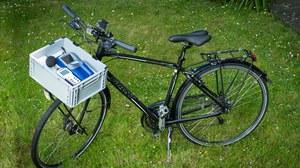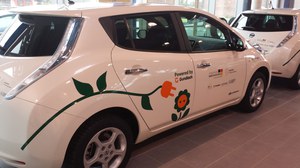Researching for Sustainability
No sustainable development without a significant reduction in environmental pollution. Therefore, we conduct research in particular in the following subject areas:
- Climate-friendly mobility: Which measures and transformation paths are advantageous on the way to seriously reducing greenhouse gas emissions? What are the advantages and disadvantages or interactions?
- Clean traffic: What do motor vehicles emit on the road in real operation? How well do mitigation measures work? What is the proportion of high-emitting vehicles. For this purpose, we evaluate in particular Germany and Europe-wide remote sensing data.
- The bicycle is an example of a clean, climate-friendly, healthy and inclusive means of transport. Our research analyzes behavior, the effectiveness of interventions and opportunities to be mobile.
 © K. J. Lassig
© K. J. Lassig
What does Transport Ecology stand for?
Transport Ecology is the science examining the relations between humans, transport and the environment while also taking the various system and rebound effects into account. Thereby, it includes actual traffic activities as well as up- and downstream processes, like construction and maintenance of traffic infrastructure or vehicles’ production and disposal. Hence, it considers direct as well as indirect, short-term as well as long-term and local as well as global impacts.
Various research areas evolve out of it.
Learn more about on our research areas' website.
We are always open for new research cooperations and are also interested in interdisciplinary collaborations. Please direct any request concerning cooperation, research assignments or expert assessments to Prof. Dr. Jens Borken-Kleefeld.

